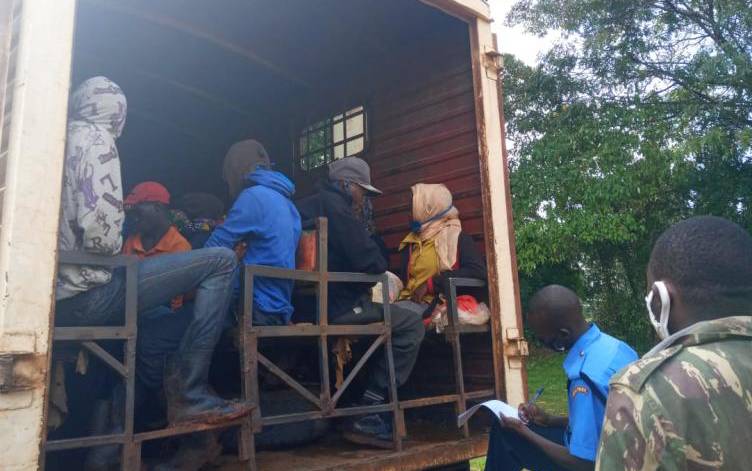×
The Standard e-Paper
Home To Bold Columnists

Employees from a farm in Maragua Ridge in Murang’a when they were arrested by police for failing to keep social distance when travelling in a truck. [Boniface Gikandi, Standard]
The National Intelligence Service (NIS) has been allocated an extra Sh1.5 billion for anti-coronavirus operations.